VW’s Scout Motors Reveals its First EVs, Adds Plug-in Hybrids
Volkswagen-backed Scout Motors is reviving its classic American brand with a fresh approach to electric vehicles, blending modern EV technology with extended-range electric vehicles (EREVs). This marks a shift from its initial EV-only strategy, allowing Scout to cater to a broader range of U.S. consumers who may be slower to adopt full EVs due to concerns about charging infrastructure or vehicle range.
EREVs combine electric drivetrains with small onboard generators, typically gasoline engines, that recharge the battery when it’s low, extending the vehicle’s range and easing range anxiety. This approach positions Scout to capitalize on both the growing EV market and appeal to consumers looking for transitional options that provide flexibility in charging and range.
The move is part of Volkswagen’s broader strategy to increase its footprint in the U.S., addressing a market where EV adoption rates vary widely. Scout’s mix of pure EVs and EREVs will allow the brand to target adventurous, utility-focused buyers who value off-road capability, versatility, and extended range.
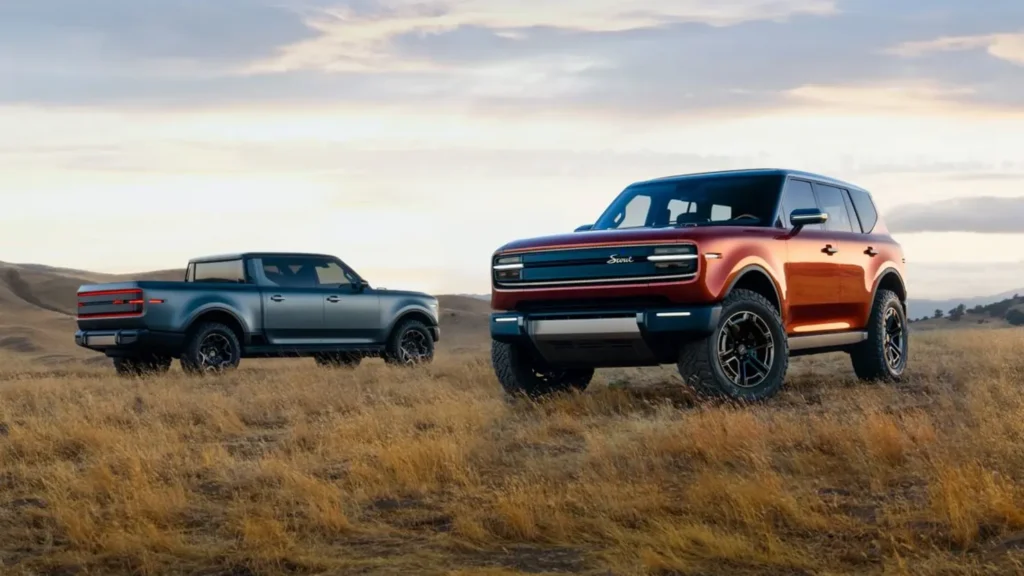
“Being a startup that moves quickly, we can pivot,” Scout CEO Scott Keogh, a longtime auto executive who previously led VW’s operations in the U.S., told CNBC. “The pivot that we made a number of months ago into offering range extender definitely was a smart play.”
EREVs operate like EVs for most driving needs, especially shorter trips, while providing the flexibility of a traditional engine for extended journeys. This configuration can reduce range anxiety for drivers while still promoting the benefits of electric driving—such as lower emissions and reduced fuel consumption—during daily commutes or around-town driving.
“We think electrification is the future. Range extender sets it up as an EV car, so it introduces people to electrification, yet it has a super smart, let’s say, ‘backup plan,’” said Scott Keogh. “It will drive like an EV.”
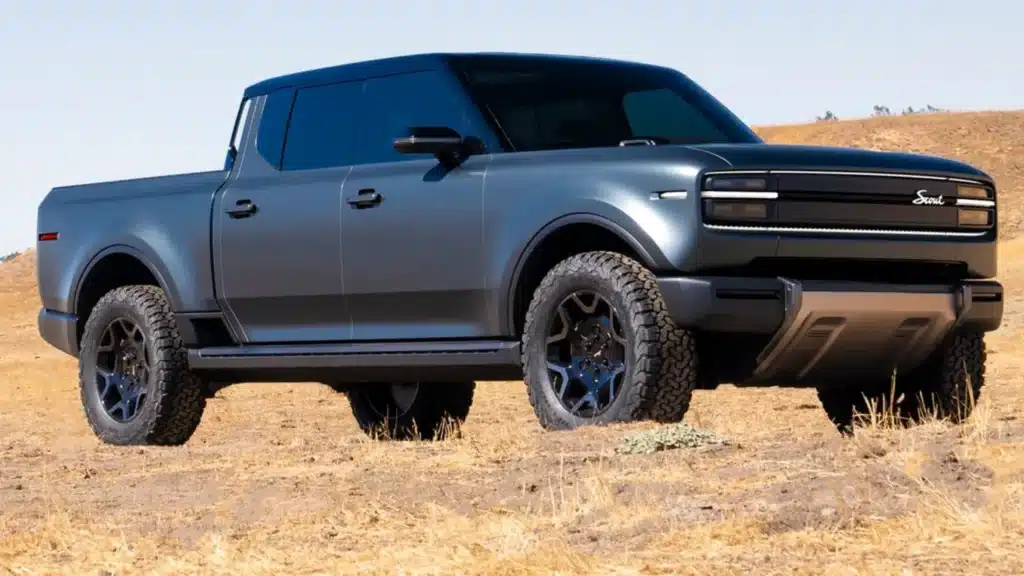
Scout Motors is focusing exclusively on electric powertrains, with no plans to offer traditional internal combustion engine (ICE)-only vehicles. This aligns with the broader industry shift toward electrification and Volkswagen’s strategy to strengthen its EV footprint in the U.S. market.
Scout’s first releases—a full-size pickup truck and a large SUV—target about 40% of the U.S. auto sales market, tapping into two of the most popular vehicle segments. The vehicles are expected to be produced at Scout’s new $2 billion plant in South Carolina, which is currently under construction. CEO Scott Keogh is optimistic that Scout will reach operational profitability within the first full calendar year after production begins, reflecting the brand’s commitment to quickly establishing a stable financial foundation while delivering on its EV-focused mission.
“If you look at these profit pools, these two areas, from this size pickup truck to this sized SUV … these are the largest profit pools in the world,” Keogh said.
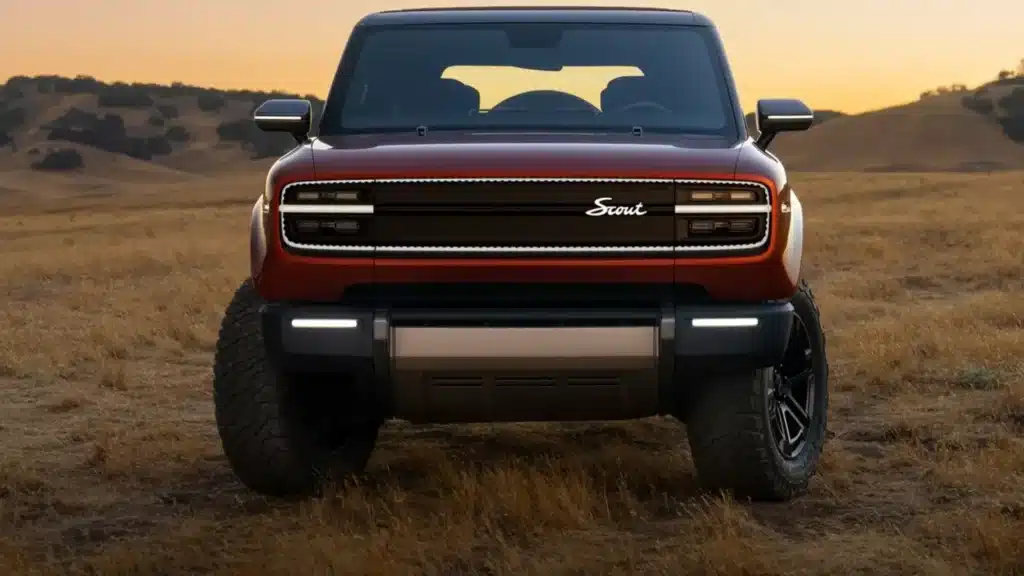
Achieving profitability within Scout’s first full calendar year of production would indeed be impressive, especially given the financial challenges faced by many EV startups. Scout’s potential success in reaching profitability early on would set it apart in the EV landscape, showcasing its strategic advantage as part of Volkswagen’s established resources and infrastructure.
Keogh also emphasized that Volkswagen’s recently announced $5 billion software agreement with Rivian won’t affect Scout’s independent operations. Instead, he sees this partnership as a beneficial move for Scout, likely providing access to advanced software capabilities and enhanced EV ecosystem development without disrupting Scout’s unique brand and strategy. This setup allows Scout to leverage VW’s resources while maintaining its own operational focus and brand identity in the market.
“It’s good for scaling. It’s good for technology. It’s good for everything,” Keogh said.
Scout Motors is setting up its South Carolina plant to produce up to 200,000 vehicles annually, tapping into the economies of scale needed for profitability. By sourcing batteries—the most costly component of an EV—from Volkswagen’s Canadian joint venture battery manufacturer, Scout aims to control expenses while ensuring consistent supply.
In a departure from Volkswagen’s usual U.S. dealership model, Scout will sell its vehicles directly to consumers, embracing the direct-to-consumer approach seen with several modern EV brands. This model allows for a closer relationship with customers, often resulting in streamlined purchasing experiences and more control over the brand’s pricing and service standards.
New Scout SUV, Truck
Scout Motors has introduced its first production-intent concept vehicles, the Traveler SUV and Terra pickup truck, expected to launch in 2027. These concepts, showcased near Nashville, closely resemble the final production models, giving potential customers an early look at Scout’s return to the American market.
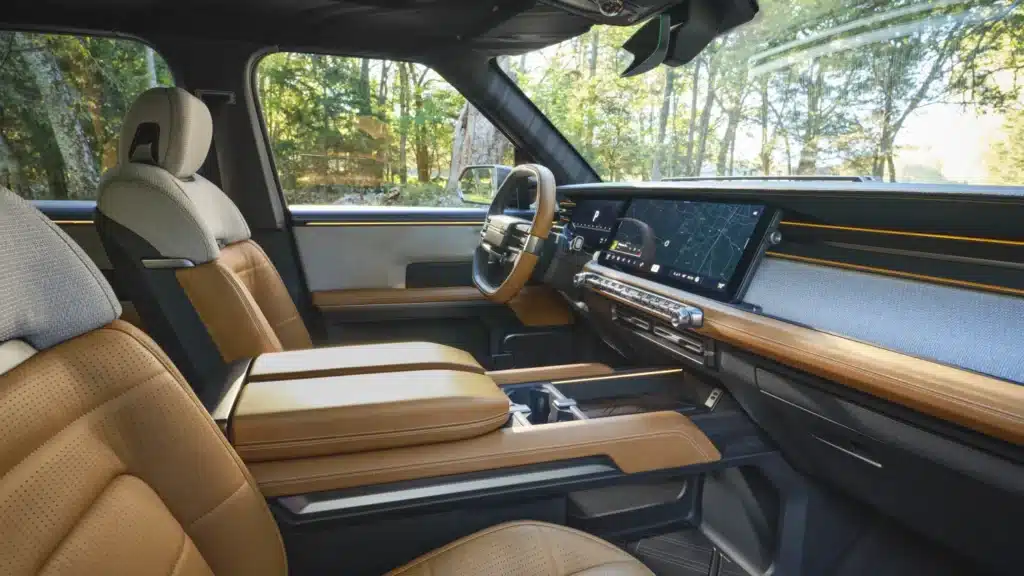
The Scout Traveler SUV and Terra pickup truck are positioned to attract a wide range of buyers with their modernized classic designs and competitive range options. The EREV versions promise more than 500 miles of range, offering a strong alternative for drivers who prioritize longer journeys, while the all-electric models aim to deliver around 300 miles. With pricing set between $50,000 and $60,000, Scout is making a robust reentry into the market, leveraging Volkswagen’s acquisition of the Scout brand to revive these iconic vehicles with a fresh, sleek aesthetic and upscale interiors.
The Traveler and Terra vehicles from Scout Motors are inspired by their classic predecessors, incorporating familiar design elements but with a contemporary twist. Their smoother, more stylish exteriors modernize the iconic Scout look, making them appealing to today’s consumers. Inside, the vehicles feature large horizontal screens and soft-touch materials, reflecting a focus on modern technology and comfort.
The revival of the Scout brand is backed by Volkswagen’s acquisition of the trademark as part of its $3.7 billion purchase of Navistar in 2021. This strategic move not only reintroduces a beloved American nameplate but also enables VW to leverage its resources and expertise in electric vehicle production to support Scout’s growth in the U.S. market.
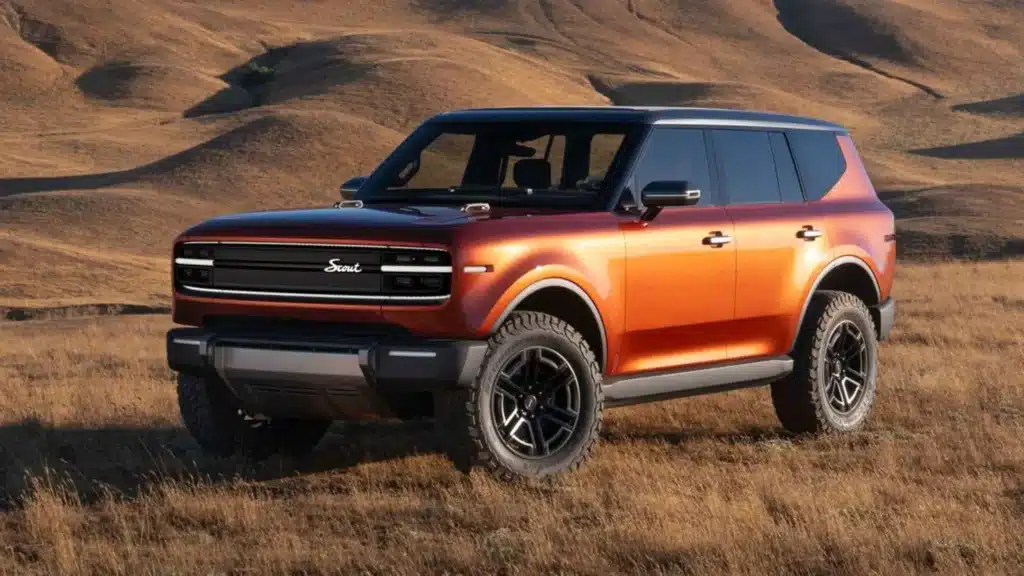
Scout’s fully electric vehicles are engineered for impressive performance, with capabilities to climb 100% grades and accelerate from 0 to 60 mph in just 3.5 seconds, delivering nearly 1,000 pound-feet of torque. These vehicles will utilize the North American Charging Standard and feature an 800-volt architecture that supports rapid charging up to 350 kilowatts. Additionally, they will include bi-directional charging technology, allowing the vehicle to function as a generator, enhancing their versatility for outdoor adventures or emergency situations.
Keogh believes Scout can differentiate itself in the EV market with its high-quality products, lower pricing and brand appeal. Additional Scout EVs are expected to follow in the years ahead, Keogh said.
“Can we consider some point in the future sizing down? Absolutely,” he said. “You want to throw the dart at the best place first. And I think we’ve done that between these two vehicles.”

Electric Vehicle Marketing Consultant, Writer and Editor. Publisher EVinfo.net.
Services